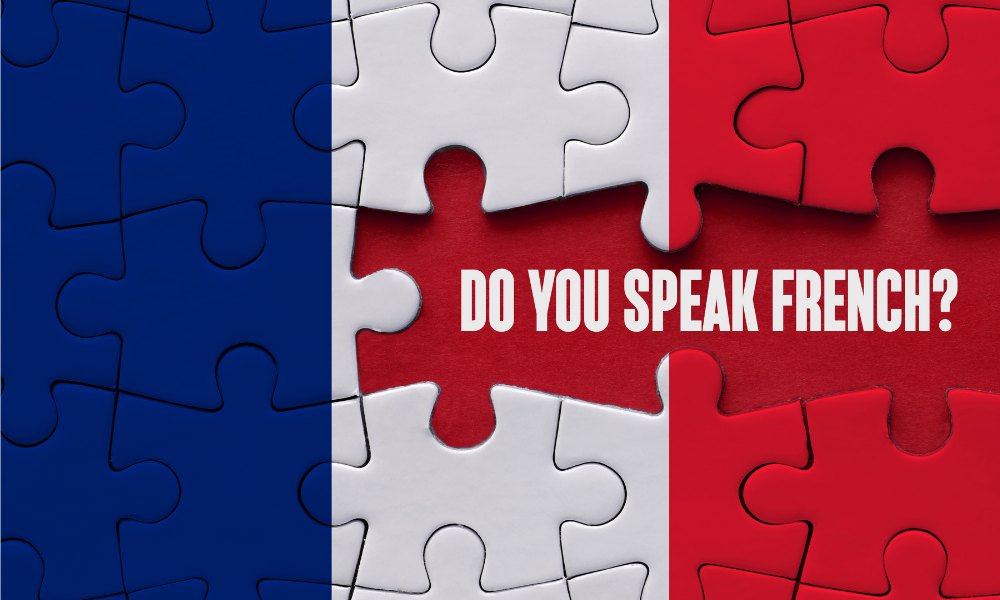You decided to make the big move to France but you’re worried about your French language proficiency.
Many people make the move without speaking the language and with hard work they manage to get by. This can be an option for you, even though I wouldn’t recommend it. Now if you want to anticipate and facilitate your arrival and integration, this article will help you to set realistic objectives.
That’s right! Being immersed in a foreign country is not enough to become fluent instantly. It will help of course, but there is no magic! The good news is that you don’t need to speak perfect French like a native speaker to live in France. Now let’s see what level you really need to gain a certain degree of fluency and spontaneity.

Table of Contents
How does the CEFR measure your French language level?
Most things that can be improved are measurable in today’s world! But hey, measuring your French isn’t just about exams. It’s about embracing a whole new way of connecting and communicating.
And for that, there is a language roadmap – the Common European Framework of Reference for Languages, or CEFR for short. It is used to measure the proficiency of individuals like a trusty compass for the foreign language learning jungle. It breaks down your journey into levels: A1-A2 for beginners, B1-B2 for intermediates, and C1-C2 for the language masters. Each level comes with its own set of skills to conquer.
At A1, you’re getting the basics down – greetings, introductions, and simple conversations. It usually represents about 60 hours of learning
By A2, you’re diving into more everyday interactions.
B1 is where things get interesting – you can discuss hobbies, and plans, and even share your opinions.
And when you reach B2, you express yourself with more confidence, you chat about almost anything, even if you occasionally trip on a word or two. B1 & B2 would represent about 180 hours, every time depending on the people and your daily immersion with the language of course.
Then the last 2 levels are advanced:
C1: represents approximately 240 hours, a high level of proficiency, advanced comprehension, and expression. You can talk about complex topics by using technical terms.
C2: Around 250 hours, near-native proficiency, understanding complex topics, and writing advanced content.

The language proficiency challenges
Now you should know that there are always challenges on the language learning journey, the same way as the expatriation journey.
And if you want your expatriation to France to be as stress-free as possible you can start by getting your move to France checklist. It will help you get started on the right foot!
As you know life is full of surprises, and so is your language adventure. Some days, you’ll feel like you’re nailing it, while others might be more like “Oops, did I just say that?” With Stress, off days …– this is normal and it happens to everyone. It definitely happens to me with Portuguese or even English!
Your personal goals will shape your language-learning journey. It can be wanting to have heartwarming conversations over French food, get lost in the world of French literature or work in France. Your objectives will be your guiding light and also your motivator.
And to start this long journey, overcoming the fear of making mistakes and taking that first step – is essential.

What French level do you need?
Now, you’re all set to make France your new home. But what level of French do you need?
Well, initially, a solid A1 or A2 level can get you started. It will allow you to communicate in a basic way. It’s like having a friendly chat with your neighbour, ordering a meal, or asking for directions. As you settle in, aim for that B1 level – it’s your passport to more in-depth conversations and mingling like a local.
Remember, this isn’t just about taking a French course, exams and certificates. Before anything else, the language is spoken. Learning a language is about engaging, connecting, and making memories. Dream of exploring markets, sharing stories over coffee, and becoming part of your new adoptive country! That’s what this language-learning journey is all about.
Fluency is not a requirement to live overseas and it also has a different meaning for every individual from basic communication to technical proficiency. Taking a French course as a beginner will help you to have solid foundations and will allow you to improve faster.
So, as you prepare to dive into your French adventure, raise a glass to the incredible journey that lies ahead. Your language skills will grow with every bonjour, every conversation, and every shared moment.
To learn French or not to learn French?
Learn French of course but with realistic expectations and without pressure to go the distance. It is a long and exciting journey that will make your experience abroad way richer! So, yes I’d recommend you learn French, at least a bit before you arrive. And remember, the most important is to be understood and connect, not to speak perfectly with a good accent.



